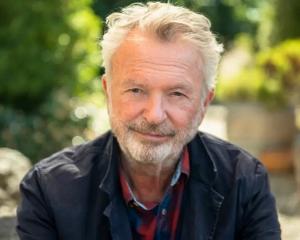

When it comes to the buses in Dunedin and Queenstown and the Queenstown ferry you would likely be disappointed.
Shortly the proposal as to how the Otago Regional Council intends to spend our money over the next 10 years will be available for us all to comment on.
This ticks a box to say they have consulted with us. It may look promising but nothing much comes from this consultation.
This is not the fault of staff, and not even entirely the fault of the councillors. The entire process is flawed.
It starts with a Regional Transport Plan (RTP) a 72-page document which is created at considerable expense and trouble. This outlines the hopes and dreams of what might be achieved with the use of public transport over the next 10 years.
It talks about what the "vision" is for public transport in Otago and what is intended to be done to achieve the vision.
Essentially the 72 pages can be summarised as:
- We want to encourage less use of fossil fuels;
- For this and other reasons we want to increase the proportion of trips being taken using buses and the Queenstown ferry compared to those using cars;
- The services should be affordable to both users and to the ratepayers who pay the shortfall in revenue.
This RTP is supposedly translated into funding in the long-term plan which describes how the ORC intends to use our money each year for the next 10 years.
The total spending on public transport in the long-term plan for 2022 to 2023 is about $35.4 million.
Neither the 72 pages nor the funding plans which are about to be consulted on bear particular reference to what the ORC will actually do for various reasons.
The councillors decide things during the year which affect public transport, outside annual budgets. These decisions include spending over $100,000 for security at the Dunedin bus hub outside the central police station.
Council budgets for a deficit as a starting point, which is against council policy.
The performance indicators, which should be useful to connect the planning paperwork to achieving any goals and visions, do not do so.
And the ORC does not have information on the number of people using each service, and therefore cost of running each service per person.
Nor is there information on the timeliness of buses leaving the hub.
And there is nothing known about the connection if any between the running of the buses and the information provided at the hub or on the app, all of which can vary widely.
Every time a proposal is made which increases the cost to ratepayers of the buses, a report goes to the ORC telling councillors that it will increase the number of people using the buses.
There is no check as to whether this eventuates. For example we have free gold card services at off-peak times and the buses were free during Covid.
What proportion of trips were and are made on buses instead of in cars when the service is totally free?
And if we don’t know how many people are on each bus service, how can we know whether running a diesel-using bus is better for the environment than running a small hybrid car?
No information is provided to councillors about emissions per km for each diesel bus when they are asked to make these various ad hoc decisions which usually increase the number of bus services.
Sometimes councillors discuss public transport issues in secret, such as the recent talk around the ferry in Queenstown.
Then we don’t even know what information a decision was based on if any.
The ORC could get more information and provide it during consultation.
It could say why it believes the spending achieves the goals. It could at least try to run a balanced budget.
And it could make decisions through the annual plan process not on the fly during the year.
Those who make decisions could actually use the buses: when I asked Dunedin city councillors and ORC councillors about their bus usage only about 10% of them said they actually travel by bus.
Until these things happen we cannot expect any decisions made to be robust when they are based on a lack of useful data on any connections between spending and results.
And any input from us, even if it was to be taken account of, will be ill-informed as well.
- Hilary Calvert is a former Otago regional councillor, MP and DCC councillor.












